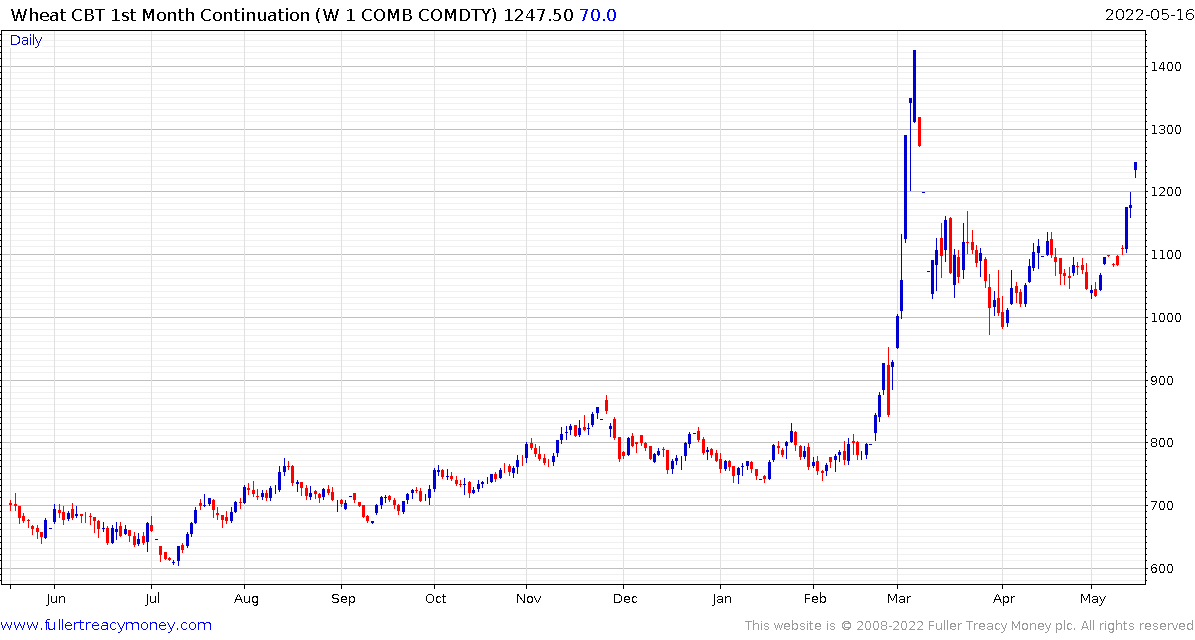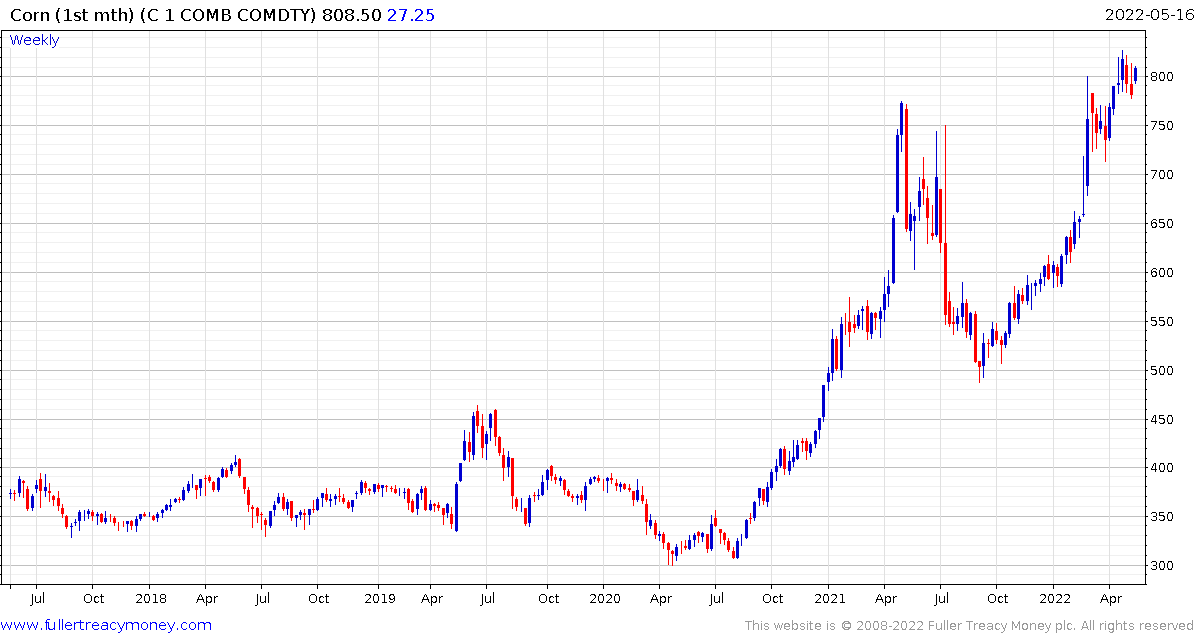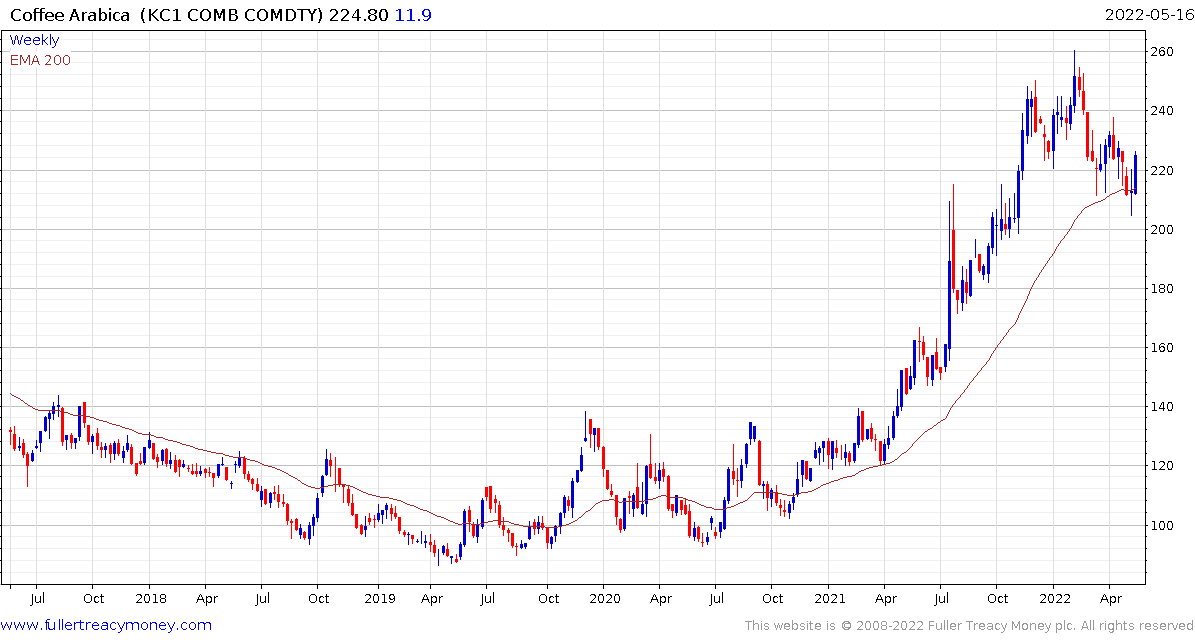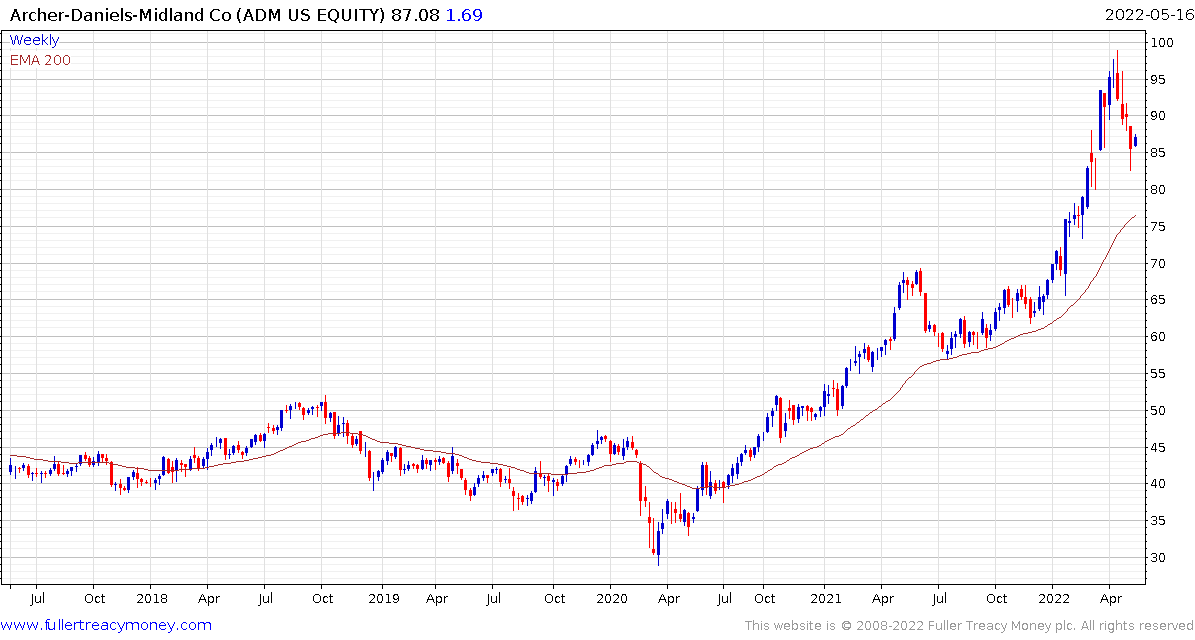Delhi suffers at 49C as heatwave sweeps India
This article from the BBC may be of interest to subscribers. Here is a section:
The effects are visible. Farmers say the unexpected temperature spikes have affected their wheat harvest, a development that could potentially have global consequences given supply disruptions due to the Ukraine war.
The heat has also triggered an increase in power demand, leading to outages in many states and fears of a coal shortage.
Mr Modi also flagged the increased risk of fires due to rising temperatures.
And
D Sivananda Pai, director of the Institute for Climate Change Studies, points to other challenges apart from climate change - such as increasing population and the resulting strain on resources.
This, in turn, leads to factors that worsen the situation, such as deforestation and increasing use of transport.
"When you have more concrete roads and buildings, heat is trapped inside without being able to rise to the surface. This warms the air further," Mr Pai says.
And the cost of such extreme weather events is disproportionately borne by the poor.
Anyone who has suffered through a muggy August in London will be familiar with the heat well effect created by concrete structures and air conditioners pouring hot air into the street.
That’s for a country that does not typically get temperatures approaching 40 degrees. For India, where pre-monsoon heat waves are typical, the urgency to industrialise is creating some unique issues.
The challenge will be speeding up growth in the supply of electricity to ensure more of the population have access to livable conditions. Without significant progress social unrest is a clear risk. This interactive graphic highlights how susceptible the region is to heatwaves.
 Wheat prices continue to recover and traded higher by the daily limit today. The war in Ukraine is graphically highlighting how tight global supplies are. The susceptibilities of the global agricultural supply chain to weather events has been greatly enhanced by the disruptions wrought by the response to the pandemic.
Wheat prices continue to recover and traded higher by the daily limit today. The war in Ukraine is graphically highlighting how tight global supplies are. The susceptibilities of the global agricultural supply chain to weather events has been greatly enhanced by the disruptions wrought by the response to the pandemic.
 Corn also remains steady in the region of the all-time highs as more ethanol is used in the gasoline mix to try and moderate prices.
Corn also remains steady in the region of the all-time highs as more ethanol is used in the gasoline mix to try and moderate prices.
 Arabica coffee firmed today from the $2 area and the trend mean to confirm at least short-term and potentially medium-term support.
Arabica coffee firmed today from the $2 area and the trend mean to confirm at least short-term and potentially medium-term support.
 ADM pulled back sharply from the late April peak but is now steadying and a sustained move below last week’s low would be required to question recovery potential.
ADM pulled back sharply from the late April peak but is now steadying and a sustained move below last week’s low would be required to question recovery potential.


